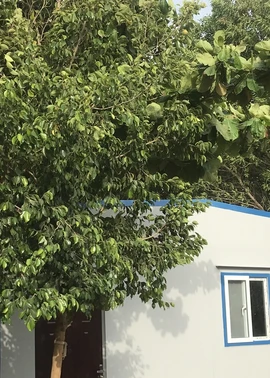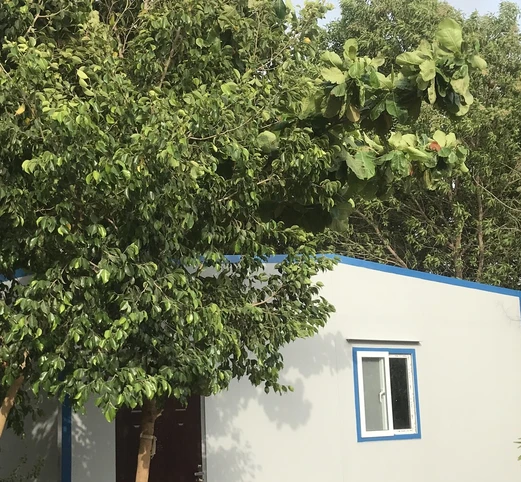The UN has reported that 1.6 billion people live in inadequate housing in a push for affordable homes (1). Another troubling statistic regarding the construction industry is that it is responsible for around 40% of global energy consumption (2). Inspired by this issue, Yaseen and two fellow civil engineering students founded ModulusTech in June 2016.
ModulusTech has invented a housing design that can be flat-packed and built in as little as three hours, at an extremely affordable cost of $11 per square foot. The flat-pack design allows 11 of these houses to be transported on a single truck, making it cheaper to transport. The materials are environment-friendly while the structure can withstand cyclonic winds, earthquakes and survive harsh climates.
The organisation operates in Pakistan with a tight knit team of nine full-time employees, and has been supported with grants from their partners UNIDO, UNEP and the Islamic Development Bank totalling $120,000. The team has also secured cumulative $5,000 from the Momentum Tech conference and Hashoo Youth Entrepreneurship. This money has been invested into buildings which have provided accommodation to over 150 people.
An expansion ModulusTech built for a local school provided access to education for 100 young girls. Additionally, the houses provide insulation three times more efficient than standard housing guidelines saving on utilities spending.
The team is currently developing a model that allows the refugees or the underprivileged population to mortgage these houses on simple and beneficial terms. Yaseen refers back to being connected with Paul Polman at the One Young World Summit which pushed him to focus more on the sustainability of their work, whilst fellow Ambassadors instilled in him an ambition to scale their work as much as possible.
(1) https://news.un.org/en/story/2017/10/567552-affordable-housing-key-development-and-social-equality-un-says-world-habitat
(2) https://www.euractiv.com/section/climate-environment/video/decarbonising-the-construction-industry-can-europe-lead-in-low-carbon-buildings-and-infrastructure/
Contributor

